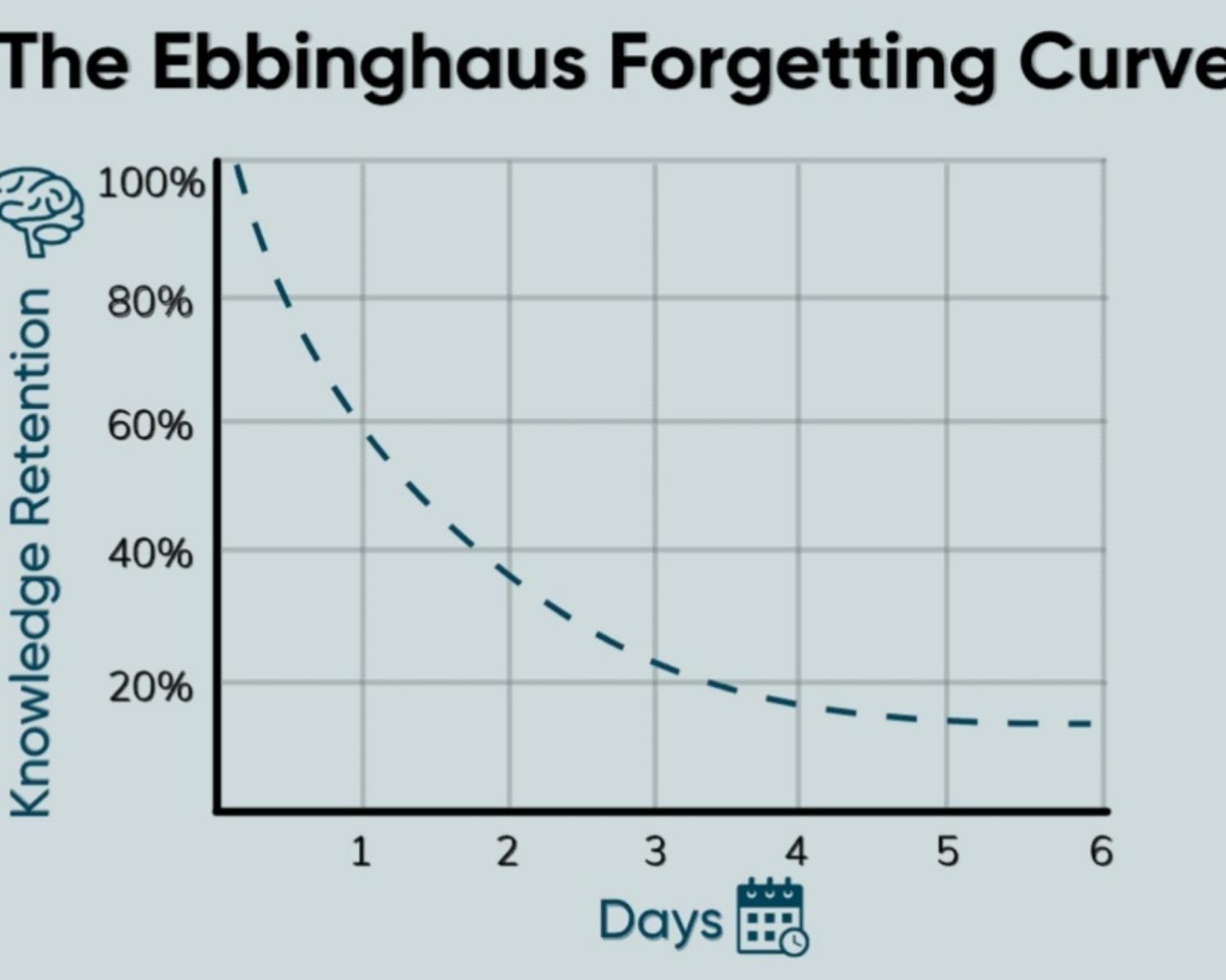How to remember the stuff you have studied ?
Ideas, facts & insights covering these topics:
7 ideas
·306 reads
2
Explore the World's Best Ideas
Join today and uncover 100+ curated journeys from 50+ topics. Unlock access to our mobile app with extensive features.
The Infamous Ebbinghaus Forgetting Curve
This curve typically shows what happens to our memory of something in a week after learning something new.
The ultimate goal to maximize our efficiency to remember something is to reduce the effects of forgetting curve.
Here are 6 effective strategies that will help you to retain much of what you have learnt.
6
68 reads
1) Spaced Practice
Evidence shows that studying your material in several sessions spread out over a long period, rather than repeatedly learning stuff in a short period, really helps to retain the material.
Importantly, it is better to overshoot the duration between your revision than to undershoot. If an exam is 2 months away a minimum of 10 days is recommended, it can get 12 but 8 is not fine. It gives us a false perception of mastery which may not pay off later.
6
54 reads
2) Interleaving
One strategy for learning is blocking. It involves practicing one thing at a time before the next ( Learning topic A before B, before C forming the pattern AABBCC), in interleaving you mix several topics together (forming the pattern ABCABC)
It may seem a little harder as it can take a bit longer to learn material. But it can generate better and long-lasting results. It is important that when using interleaving method you shouldn't switch between subjects too often, it's all about getting the balance.
7
46 reads
3) Retrieval Practice
The only way to know if your practice is working is by testing yourself. Evidence shows that testing is one of the most important factor to aid your revision and it can drastically improve your memory.
While initially it may seem better to study more, over time you are much more likely to retain information if you test yourself. This surprising phenomenon is called the testing effect!
Some ideas on how you can test yourself:
- Flashcards
- Practice questions online
- Questions in textbooks
- Getting friends to quiz you in a study group
- Past papers
7
41 reads
4) Elaboration
Elaboration is where are you enhance the information of the learning material by relating it to other information that you already know so that you think about it differently.
This strategy makes you ask more in-depth questions about how and why things work; deepening your sematic understanding
7
39 reads
5) Link Information To Expand Your Memory
When we are learning new information that we do not want it to interfere with what we have previously learned. If this happens it is called retroactive interference. When this happens the memory that you have stored previously for some reasons cannot be retrieved. This is more likely to occur when learning similar materials.
So when learning new information, try to make sure you are learning it in fundamentally different way on how you learned similar materials. Use new cues and try to keep the information separate. Consider connecting the dots.
6
29 reads
6) Stay Curious To Learn More
Stimulating curiosity creates more effective learning experiences. This means the more interested or curious you are about something, the better.
If you find a topic boring try connecting it with something that you do find interesting. Thinking in these terms can really change how you feel about a topic and consequently how well you end up learning it.
6
29 reads
IDEAS CURATED BY
Similar ideas
Read & Learn
20x Faster
without
deepstash
with
deepstash
with
deepstash
Personalized microlearning
—
100+ Learning Journeys
—
Access to 200,000+ ideas
—
Access to the mobile app
—
Unlimited idea saving
—
—
Unlimited history
—
—
Unlimited listening to ideas
—
—
Downloading & offline access
—
—
Supercharge your mind with one idea per day
Enter your email and spend 1 minute every day to learn something new.
I agree to receive email updates

